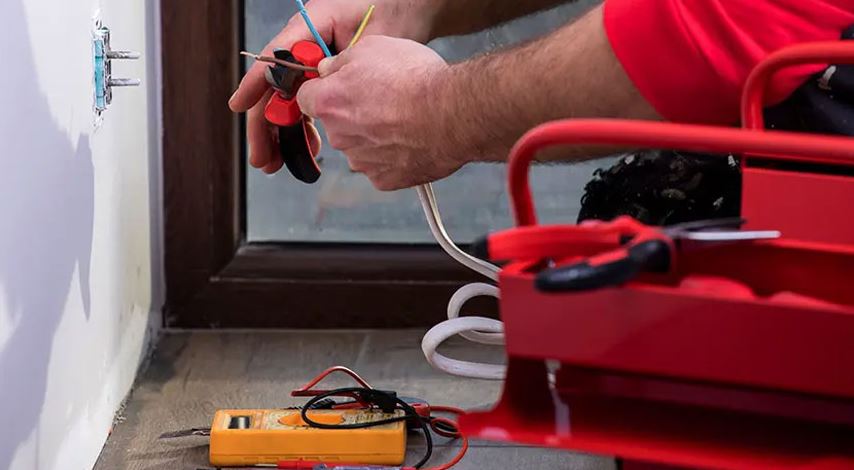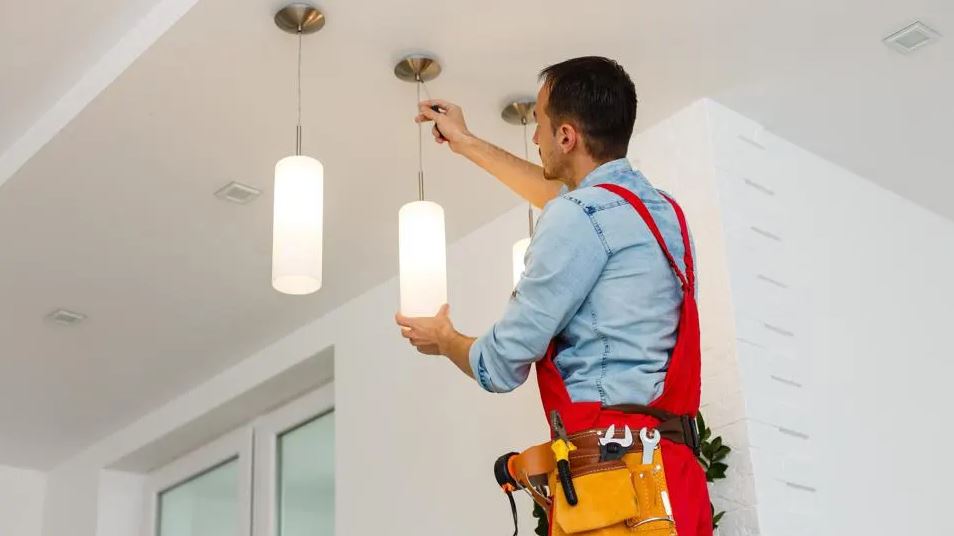How To Find The Right Residential Electrician For Your Needs

How Can A Residential Electrician Help Homeowners Integrate Smart Home Technology
July 21, 2023
The Advantages Of Employing An Expert Residential Electrician
July 21, 2023Navigating the labyrinth of home maintenance can often feel like a journey into an unknown territory. The path is filled with twists and turns, dead ends that lead to costly mistakes, and the occasional monster in the form of unforeseen problems. One such beast is electrical issues – they lie hidden beneath the surface, only to rear their heads when least expected or wanted.
These instances necessitate professional intervention; not just any handyman will do but a residential electrician who specializes in domestic electrical systems. Understanding and evaluating one’s electrical needs is akin to mapping this labyrinth – it helps homeowners anticipate potential pitfalls and equips them with knowledge to make informed decisions. Selecting a suitably qualified electrician further ensures safety, efficiency, and longevity of the household’s electrical system.
This article seeks to illuminate these uncharted territories by outlining strategies for identifying personal requirements and choosing the most adept professional for residential electrical work. Thus begins our journey into demystifying this intricate maze of home maintenance.
Evaluating Your Electrical Needs
In order to select an appropriate residential electrician, a comprehensive evaluation of one’s electrical needs, akin to navigating through an intricate labyrinth, is the fundamental first step.
This process involves understanding the scale and complexity of electrical projects in the residential area. Tasks could range from simple installations or replacements such as outlets, switches or light fixtures to more complex operations like circuit breaker reconfigurations, installing new wiring systems or upgrading the entire electrical panel. It is also crucial to anticipate future requirements such as increased power capacity for possible home expansions or installation of advanced appliances and devices.
The second stage in this assessment entails identifying any special considerations that may impact the choice of an electrician. For instance, older homes might necessitate specialists who are adept at dealing with knob-and-tube wiring without inflicting damage on historical architecture. Moreover, residences located in areas prone to natural disasters might require electricians skilled in implementing preventative measures against potential electrical hazards caused by extreme weather conditions. Additionally, it should be taken into account whether a given project demands adherence to specific environmental standards or energy efficiency guidelines.
Having understood the nature and scope of electrical tasks required by a residence along with any unique considerations involved offers a valuable aid in shortlisting suitable candidates among residential electricians available within one’s locale. These insights can serve as guiding parameters while scrutinizing potential electricians’ qualifications and expertise for alignment with identified requirements. Furthermore, it allows homeowners to communicate their needs effectively during initial discussions with prospective service providers thereby facilitating accurate cost estimates and work timelines while fostering a sense of belonging amongst all parties involved on common grounds of shared understanding.
Selecting a Qualified Electrician
Selecting a qualified electrician involves careful consideration of their licensing, experience, and reputation within the industry.
A valid license is an essential attribute as it signifies that the individual has gone through formal training and is authorized to perform electrical work in compliance with local codes and standards.
Additionally, the depth of experience possessed by an electrician can serve as a crucial indicator of their ability to handle complex issues or unique challenges.
It is also imperative to research about the electrician’s standing within the industry; reading customer reviews or seeking recommendations could provide valuable insights into their reliability and quality of work.
The next step for individuals who require residential electrical services consists of interviewing potential candidates. This process will allow one to assess whether they possess comprehensive knowledge of safety procedures, are familiar with current technology trends in the field, and have a detailed understanding of building codes relevant to electrical installations.
Furthermore, during this phase, one should verify if the prospective electricians carry proper insurance coverage which protects against any unforeseen accidents or damage that may occur while performing tasks.
An additional factor that can significantly influence one’s choice is how well the professional communicates and resonates with them on a personal level. Though this might not directly relate to technical competence or expertise in handling electrical systems, rapport facilitates smoother interactions throughout project duration.
An approachable demeanor combined with clear communication skills ensures that concerns are addressed promptly and accurately thereby fostering trust between both parties involved in achieving successful outcomes from undertaken projects.
Therefore, even though finding an apt residential electrician requires methodical evaluation of various aspects such as qualifications, expertise and availability among others – establishing interpersonal compatibility too plays a pivotal role in aligning expectations effectively ensuring satisfactory service delivery ultimately leading towards fulfilling intended needs optimally.





